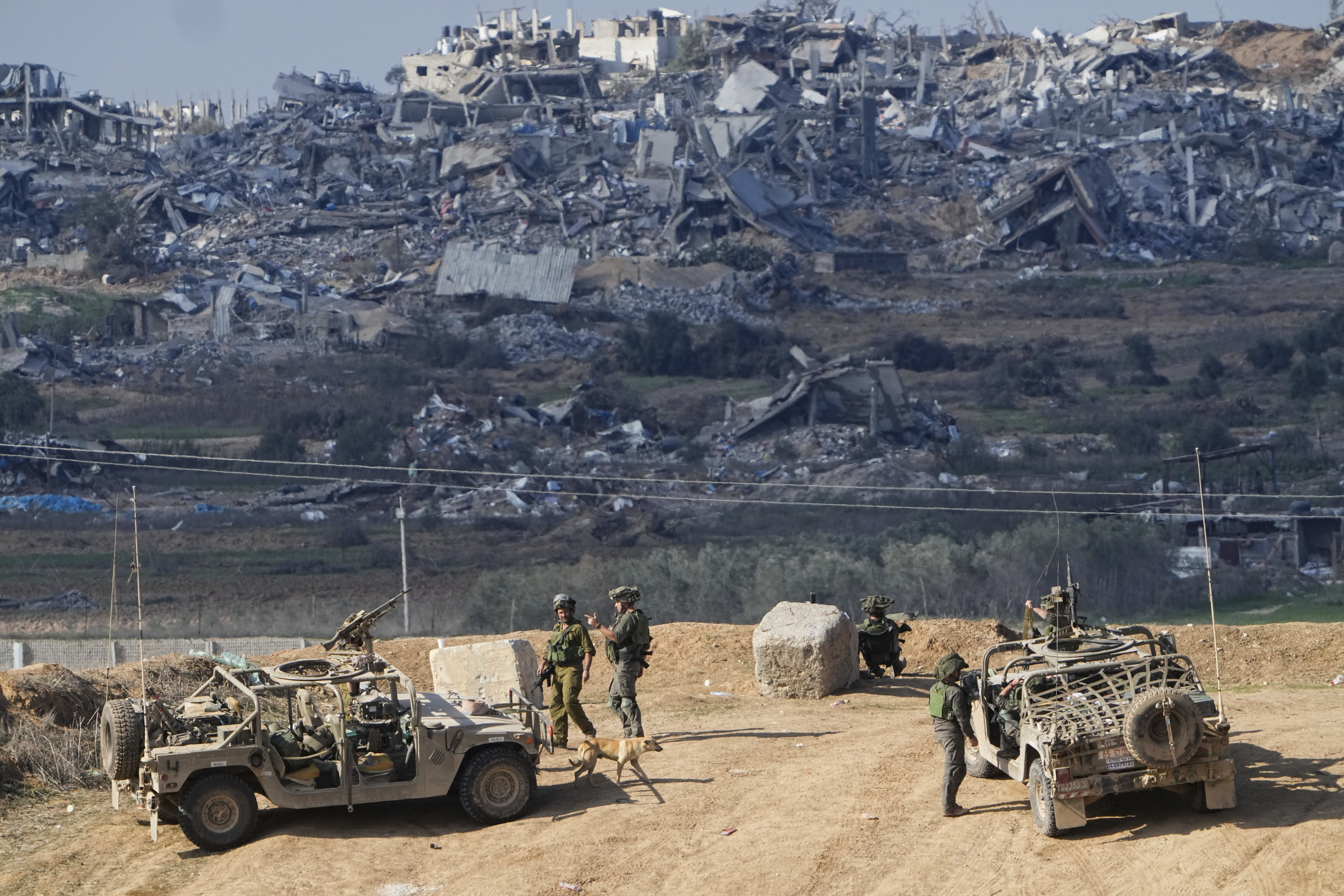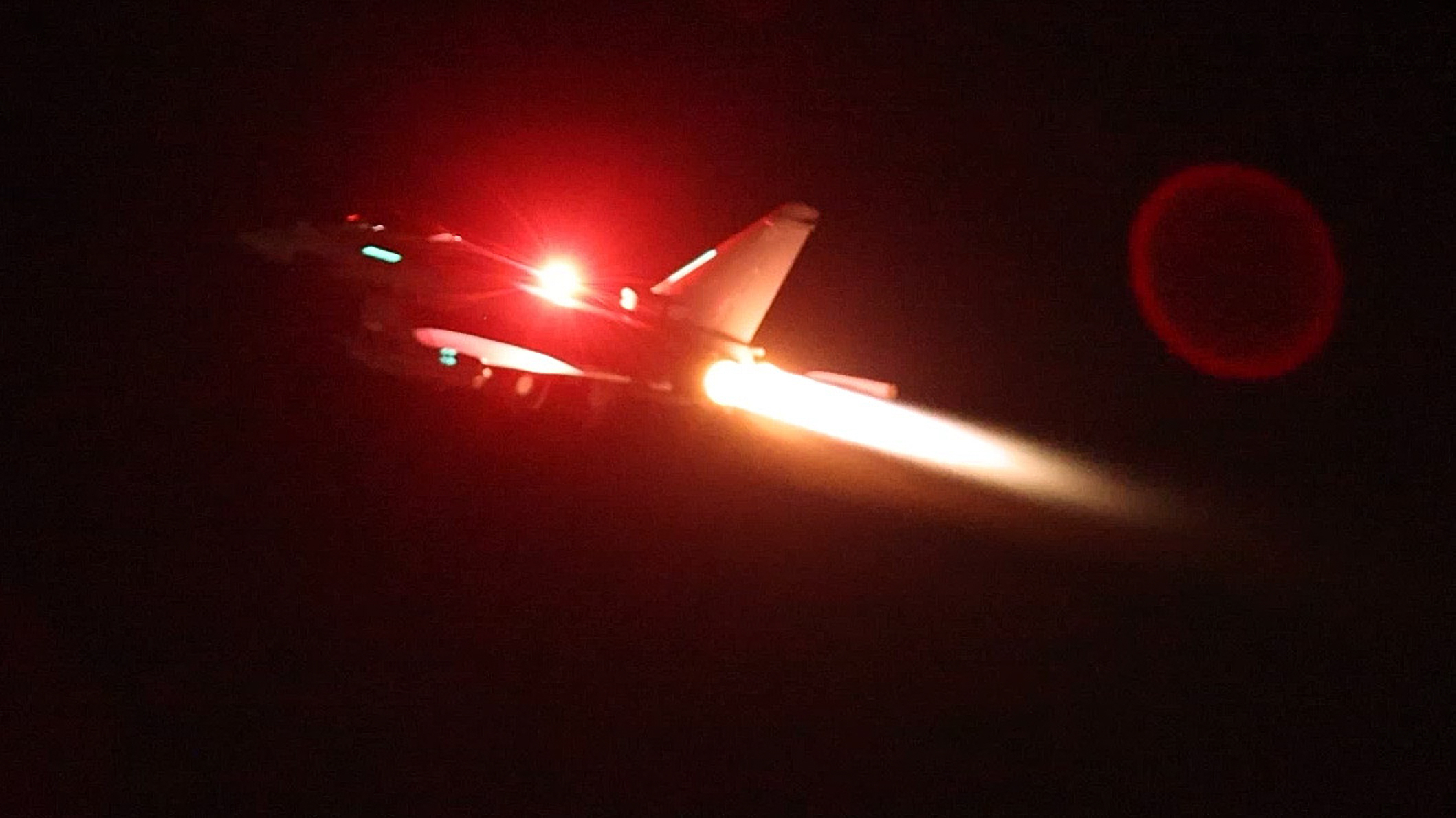
More than 30 Palestinians, including young children, were killed in Israeli bombardments overnight into Saturday in the Gaza Strip, officials said, while a new U.S. strike against Iran-backed rebels in Yemen heightened fears that the Israel-Hamas war could escalate into a regional conflict.
Fears of a wider conflagration have been palpable since the start of the war, triggered by the deadly Oct. 7 attack on southern Israel by Hamas and other Gaza militants.
WATCH ANYTIME FOR FREE
Stream NBC10 Boston news for free, 24/7, wherever you are. |
New fronts quickly opened, with Iran-backed groups — Houthi rebels in Yemen, Hezbollah in Lebanon and Iran-backed militias in Iraq and Syria — carrying out a range of attacks. From the start, the U.S. increased its military presence in the region to deter an escalation.
Following a Houthi campaign of drone and missile attacks on commercial ships in the Red Sea, the U.S. and Britain launched multiple airstrikes against the rebels Friday, and the U.S. hit another site Saturday.
Get updates on what's happening in Boston to your inbox. Sign up for our News Headlines newsletter.
In another fallout from the war, the International Court of Justice heard allegations by South Africa this week that Israel committed genocide against the Palestinians. The complaint cited the soaring death toll and hardships among Gaza civilians, along with inflammatory comments from Israeli leaders cited as proof of what South Africa said was genocidal intent.
In counter arguments Friday, Israel asked that the case be dismissed as meritless. Israel's defense argued that Israel had the right to fight back against an enemy bent on its destruction, that South Africa had barely mentioned Hamas and that it ignored what Israel considers attempts to mitigate civilian harm.
The court was asked by South Africa to issue interim injunctions, including calling for a halt to Israel's offensive.
In Gaza, where Hamas has put up but stiff resistance to Israel's blistering air and ground campaign, the war continued unabated.
The Gaza Health Ministry said Saturday that 135 Palestinians were killed in the last 24 hours, bringing the overall toll of the war to 23,843. The count does not differentiate between combatants and civilians, but the ministry has said about two-thirds of the dead are women and children. The ministry said the total number of war-wounded surpassed 60,000.
Following an Israeli airstrike before dawn Saturday, video provided by Gaza's Civil Defense department showed rescue workers searching through the twisted rubble of a building in Gaza City by flashlight.
Footage showed them carrying a young girl wrapped in blankets with injuries to her face, and at least two other children who appeared dead. A boy, covered in dust, winced as he was loaded into an ambulance.
The attack on the home in the Daraj neighborhood killed at least 20 people, according to Civil Defense spokesperson Mahmoud Bassal.
Another strike late Friday near the southern city of Rafah on the Egyptian border killed at least 13 people, including two children. The bodies of those killed, primarily from a displaced family from central Gaza, were taken to the city's Abu Youssef al-Najjar hospital where they were seen by an Associated Press reporter.
Israel has argued Hamas is responsible for the high civilian casualties, saying its fighters make use of civilian buildings and launch attacks from densely populated urban areas.
The Israeli military released a video Saturday that it said showed the destruction of two ready-to-use rocket launching compounds in Al-Muharraqa in central Gaza. A large grove of palm trees and some homes are seen in the frame. In the video, a rocket is being thrown into the air by the blast. The military said there had been dozens of launchers ready to be used.
With the war in Gaza entering its 100th day on Sunday, the World Health Organization has said only 15 of the territories' 36 hospitals still partially functional, according to OCHA, the United Nations' humanitarian affairs agency.
The main hospital in central Gaza, Al-Aqsa Martyrs Hospital in the city of Deir al-Balah, went dark Friday morning after running out of fuel.
Staff were able to keep ventilators and incubators operating with solar-charged batteries during the day, and received a small emergency shipment of fuel from another hospital late Friday.
Fuel was expected to run out again on Saturday unless the WHO is able to deliver a promised shipment, hospital officials said. Aid deliveries were being disrupted by a renewed drop in telecommunications connectivity in much of Gaza, which began late Friday.
In its Oct. 7 attack, Hamas and other militants killed some 1,200 people in Israel, mostly civilians. About 250 more were taken hostage, and while some have been released or confirmed dead, more than half are believed to still be in captivity.
Since the start of Israel's ground operation in late October, 186 Israeli soldiers were killed and another 1,099 injured in Gaza, according to the military. More than 85% of Gaza’s population of 2.3 million has been displaced as a result of Israel's air and ground offensive, and vast swaths of the territory have been leveled.
Amid already severe shortages of food, clean water and fuel in Gaza, OCHA said in its daily report that Israel's severe constraints on humanitarian missions and outright denials had increased since the start of the year.
The agency said only 21% of planned deliveries of food, medicine, water and other supplies have been successfully reaching northern Gaza.
“These denials paralyze the ability of humanitarian partners to respond meaningfully, consistently and at-scale to widespread humanitarian needs,” the agency said.
American and other international efforts pushing Israel to do more to alleviate the suffering of Palestinian civilians have met with little success.
At the same time, Shifa Hospital in Gaza City, the territory's main hospital that had been shut down since November, had begun partially functioning again, the WHO said Friday.
Director-General Tedros Ghebreyesus said his organization has delivered 9,300 liters (2,460 gallons) of fuel to Shifa, allowing a 60-person medical team to begin treating more than 1,000 patients.



